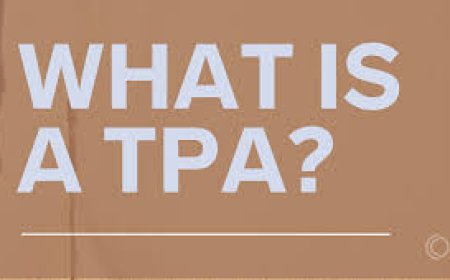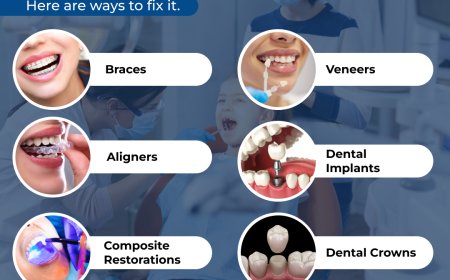Overcoming Challenges in Community Health Nursing Modules
Overcoming Challenges in Community Health Nursing Modules
Overcoming Challenges in Community Health Nursing Modules
Community health nursing is an BSN Class Help integral part of nursing education and practice. Unlike hospital-based nursing, community health focuses on preventive care, health promotion, and addressing the needs of populations rather than individuals alone. It involves understanding public health principles, epidemiology, environmental health, and the social determinants affecting health outcomes within communities.
For many nursing students, community health nursing modules pose unique challenges. These include unfamiliarity with public health frameworks, difficulty applying theoretical concepts to community settings, and limited exposure to population-based care compared to acute care settings. This article explores these challenges in depth and offers practical strategies for students to overcome them effectively.
Understanding Community Health Nursing
Community health nursing involves:
- Assessing community health needs
- Designing, implementing, and evaluating health programs
- Providing care with a focus on prevention and health promotion
- Collaborating with interdisciplinary teams, policymakers, and community organizations
It requires a shift from individual patient care to assessing patterns within populations and creating interventions to improve health outcomes broadly. This population-focused approach is crucial for reducing healthcare disparities and promoting health equity.
Challenge 1: Adapting from Individual to Population Focused Care
In acute care settings, nursing students are trained to care for individual patients. Community health modules require a paradigm shift to population-based care.
Why its challenging:
Students must think about health trends, risk factors affecting groups, and designing interventions that reach many people, rather than one-on-one bedside interventions.
Strategies to overcome:
- Study Public Health Models: Familiarise yourself with frameworks like the Health Belief Model, PRECEDE-PROCEED, and Social Ecological Model to understand how health behaviours are influenced at different levels.
- Practise Community Assessments: During coursework or community placements, assess the needs of populations using tools like windshield surveys, community health assessments, and epidemiological data reviews.
- Connect Theory to Practice: When learning about vaccination programs or screening initiatives, visualise how these impact community health indicators rather than just individual outcomes.
Challenge 2: Managing Extensive Theoretical Content
Community health modules cover a broad range of topics such as epidemiology, communicable disease control, health education, disaster management, and environmental health.
Why its challenging:
The breadth of content can feel overwhelming, particularly when students attempt to memorise topics without understanding their practical application.
Strategies to overcome:
- Organise Content Thematically: Group topics under themes such as disease prevention, environmental health, and vulnerable populations to streamline study.
- Create Concept Maps: Visualise how topics interrelate, for example linking social determinants of health with community assessment, epidemiology, and program planning.
- Prioritise Application Over Memorisation: Focus on how concepts apply to real-life community health scenarios rather than purely factual recall.
Challenge 3: Difficulty Applying Epidemiological Concepts
Community health nursing integrates epidemiology to understand disease trends and health determinants in populations.
Why its challenging:
Terms like incidence, prevalence, morbidity, and mortality may be confusing, and students may struggle to calculate rates or interpret data.
Strategies to overcome:
- Use Practical Examples: Practise calculations with examples from lecture slides, textbooks, or current public health reports to understand how data informs nursing interventions.
- Attend Workshops: Participate in statistics or epidemiology workshops offered by your university to strengthen confidence.
- Discuss with Instructors: Seek clarification from lecturers on difficult concepts early rather than postponing until exam preparations.
Challenge 4: Limited Clinical Exposure to Community Settings
Many nursing programs allocate fewer nurs fpx 4055 assessment 4 clinical hours to community placements compared to hospital rotations.
Why its challenging:
Limited time in community settings makes it difficult to integrate theoretical learning with practical experiences.
Strategies to overcome:
- Maximise Placement Experiences: Be proactive during community rotations by asking questions, volunteering for health education sessions, and participating in community assessments.
- Reflect on Experiences: Maintain a reflective journal documenting observations, interventions, and insights gained during community placements to consolidate learning.
- Engage with Community Projects: Participate in university or local public health projects even outside scheduled placements to enhance exposure.
Challenge 5: Developing Cultural Competence
Community health nursing requires sensitivity to cultural, socioeconomic, and linguistic diversity within populations.
Why its challenging:
Students may lack experience working with diverse populations or understanding cultural factors influencing health behaviours.
Strategies to overcome:
- Learn About Local Communities: Research demographics, health disparities, and cultural practices within your community placement areas.
- Practise Cultural Humility: Approach all interactions with openness, avoiding assumptions about beliefs or practices.
- Seek Feedback: Ask preceptors or community leaders for feedback on cultural appropriateness of your communication and interventions.
Challenge 6: Designing Effective Health Education Programs
Community health modules often require students to develop health education plans addressing specific community needs.
Why its challenging:
Students may find it difficult to design educational interventions that are evidence-based, culturally appropriate, and practical within resource constraints.
Strategies to overcome:
- Assess Learning Needs Thoroughly: Tailor educational programs based on target population needs, literacy levels, and cultural relevance.
- Use Teaching Frameworks: Apply frameworks like ASSURE for instructional design to structure education sessions systematically.
- Evaluate Programs: Incorporate feedback and simple evaluation tools to measure effectiveness and areas for improvement.
Challenge 7: Understanding Public Health Policies and Systems
Community health nursing requires knowledge of policies, healthcare systems, and resource allocation processes affecting population health.
Why its challenging:
Policy-related topics may feel abstract or irrelevant without practical context.
Strategies to overcome:
- Relate Policies to Practice: Link policies learned in class to their impact on community health, such as immunisation laws, disaster management plans, or public health funding programs.
- Follow Current Events: Stay updated with local and national public health initiatives to see theoretical concepts applied in real scenarios.
- Participate in Advocacy Discussions: Join student nursing organisations or community groups involved in health advocacy to understand policy processes directly.
Challenge 8: Balancing Community Modules with Other Coursework
Students often take community health modules alongside other demanding nursing courses, leading to time management issues.
Why its challenging:
The workload can become overwhelming, causing students to neglect thorough preparation for community health classes and assessments.
Strategies to overcome:
- Schedule Dedicated Study Time: Allocate specific weekly slots for community health reading and assignment work.
- Use Active Learning Techniques: Practise retrieval-based learning, flashcards, and concept mapping to study efficiently.
- Integrate Learning: Where possible, relate concepts from other courses to community health, such as linking pharmacology knowledge to community medication education programs.
Challenge 9: Preparing for Community Health Exams
Exams often include application-based questions assessing students ability to implement theoretical knowledge in public health scenarios.
Why its challenging:
Students accustomed to memorisation-based exams may struggle with application questions.
Strategies to overcome:
- Practise Application Questions: Use NCLEX-style community health questions to strengthen critical thinking.
- Study with Peers: Group discussions on community case studies enhance understanding and expose students to diverse perspectives.
- Seek Clarification Early: Address knowledge gaps with instructors well before exams to build confidence.
Challenge 10: Maintaining Motivation and Professional Identity
Some students may undervalue community health compared to acute care specialties, affecting motivation and learning engagement.
Why its challenging:
They may perceive community nursing as less dynamic or prestigious than hospital roles.
Strategies to overcome:
- Recognise Its Impact: Understand that community health nursing prevents diseases, reduces hospital admissions, and improves population wellbeing on a broader scale.
- Learn from Role Models: Engage with community health nurses during placements to appreciate their expertise, autonomy, and contributions.
- Visualise Career Opportunities: Realise that community health offers diverse career paths in public health nursing, epidemiology, education, policy, and research.
Benefits of Overcoming These Challenges
Excelling in community health nursing modules equips students with skills such as:
- Critical Thinking: Assessing population health needs and designing interventions strategically.
- Communication: Educating diverse groups and advocating effectively.
- Leadership: Managing programs, coordinating care across disciplines, and influencing health policies.
- Cultural Competence: Delivering inclusive, respectful, and equitable care.
These competencies are crucial for well-rounded nursing practice in todays complex healthcare environments.
Conclusion
Community health nursing modules nurs fpx 4065 assessment 4 challenge students to expand their focus beyond individual patients to populations and public health systems. While these challenges are real, adopting structured strategies such as thematic study organisation, practical application, reflective learning, cultural competence development, and proactive engagement with community placements can transform community health from an overwhelming subject to an area of academic and professional strength.
By overcoming these challenges, nursing students build confidence, broaden their perspectives, and prepare for roles that shape health outcomes on a larger scale. Embracing community health learning not only enhances academic performance but also empowers students to become advocates, educators, and leaders in creating healthier communities locally and globally.


































